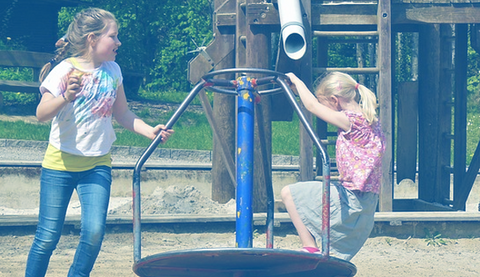July 29, 2015
What Children's Playground Behavior Says About Them

What Can Playground Behavior Indicate About Children?
Playground behavior in children is not just about play; it can be indicative of deeper aspects of their personalities and social dynamics. Studies in psychiatry and pediatrics have even explored the possibility of predicting adult personalities based on playground interactions.
What Are Some Common Playground Personalities Observed in Children?
-
The Leader: This child often takes charge in organizing teams and refereeing games. They may come across as bossy but generally aim to ensure playtime is enjoyable and structured.
-
The Bully: Unlike The Leader, The Bully seeks to dominate the playground for personal gain, often resorting to aggression like pushing other kids or grabbing swings to establish territory.
-
The Troublemaker: Similar to The Bully but with distinct differences, The Troublemaker is focused on creating mischief and chaos, often engaging in pranks and disruptive behavior.
-
The Meek: Introverted and subservient, The Meek tends to avoid confrontation with more dominant personalities and may wait for a chance to play when it feels safer.
-
The Observer: Typically alone and content with it, The Observer is perceptive and enjoys watching others. They are often self-sufficient, finding entertainment in nature or the surrounding environment without needing active participation in play.
How Might These Playground Personalities Reflect Future Adult Behaviors?
These playground behaviors could potentially reflect certain traits that persist into adulthood. For instance, leaders might develop strong organizational skills, bullies might continue to struggle with aggression, troublemakers might exhibit a penchant for risk-taking, the meek might develop a cautious approach to social interactions, and observers might grow into insightful, contemplative adults. However, it's important to note that these are not definitive predictions, and children's personalities can evolve significantly over time.

Also in Rubber Mulch Blog

Embracing Eco-Friendliness by Choosing Rubber Mulch for Your Playground
June 17, 2025
“Reuse, Recycle, and Reduce” are three main aims when it comes to preserving the health of our planet. Rubber mulch definitely falls within their scope. Conserving resources, energy efficiency, and better health for kids are all rubber mulch benefits.

Effective Mold and Fungi Prevention: The Hidden Value of Rubber Mulch
October 31, 2024

Create Your Own Sensory Path with Rubber Pavers
October 28, 2024
shop
Copyright © 2025 RubberMulch.com - All Rights Reserved.






